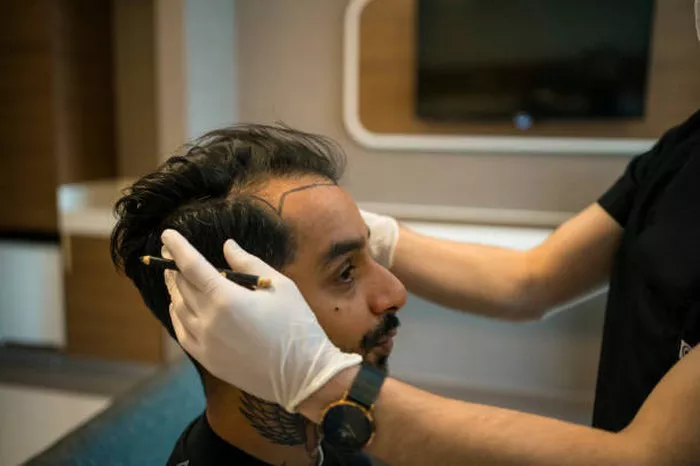Hair transplant surgery is a life-changing procedure for many people. It can restore confidence and give you a fuller head of hair. However, preparing for the surgery is just as important as the procedure itself. One of the most overlooked aspects of preparation is diet. What you eat before your surgery can significantly impact your results and recovery.
In this article, we’ll explore everything you need to know about pre-surgery nutrition. From essential nutrients to foods to avoid, we’ve got you covered. Let’s dive in!
Why Nutrition Matters Before Hair Transplant Surgery
Your body needs the right nutrients to heal and recover after any surgical procedure. Hair transplant surgery is no exception.
Proper nutrition can:
- Boost your immune system
- Promote faster healing
- Reduce the risk of complications
- Improve the health of your scalp and hair follicles
Eating the right foods before your surgery ensures that your body is in the best possible condition to handle the procedure and recover quickly.
Essential Nutrients for Pre-Surgery Preparation
Certain nutrients play a crucial role in preparing your body for surgery.
Here’s a breakdown of the most important ones:
1. Protein
Protein is the building block of your body. It helps repair tissues and promotes wound healing.
Before your hair transplant, include high-quality protein sources in your diet, such as:
- Lean meats (chicken, turkey, fish)
- Eggs
- Beans and legumes
- Greek yogurt
- Tofu and tempeh
2. Vitamins
Vitamins are essential for overall health and recovery.
Focus on these key vitamins:
Vitamin C: Boosts collagen production and strengthens your immune system. Found in citrus fruits, strawberries, and bell peppers.
Vitamin A: Promotes skin health and healing. Found in carrots, sweet potatoes, and spinach.
Vitamin E: Acts as an antioxidant and supports skin repair. Found in nuts, seeds, and leafy greens.
3. Minerals
Minerals like zinc and iron are vital for tissue repair and oxygen transport in the blood.
Include these mineral-rich foods in your diet:
Zinc: Found in shellfish, pumpkin seeds, and lentils.
Iron: Found in red meat, spinach, and fortified cereals.
4. Omega-3 Fatty Acids
Omega-3s reduce inflammation and support scalp health.
Great sources include:
- Fatty fish (salmon, mackerel, sardines)
- Flaxseeds
- Walnuts
- Chia seeds
5. Hydration
Staying hydrated is crucial for optimal blood flow and nutrient delivery to your scalp. Aim to drink at least 8-10 glasses of water daily in the days leading up to your surgery.
Foods to Avoid Before Hair Transplant Surgery
Just as some foods can help, others can hinder your preparation.
Avoid these foods to reduce the risk of complications:
1. Processed Foods
Processed foods are often high in sugar, salt, and unhealthy fats. These can cause inflammation and slow down healing.
Avoid:
- Chips
- Sugary snacks
- Frozen meals
2. Alcohol
Alcohol can dehydrate your body and thin your blood, increasing the risk of bleeding during surgery. Avoid alcohol for at least one week before your procedure.
3. Caffeine
While a cup of coffee is fine, excessive caffeine can lead to dehydration and increased anxiety. Limit your intake in the days leading up to your surgery.
4. High-Sodium Foods
Too much salt can cause water retention and swelling, which may interfere with the healing process.
Avoid:
- Canned soups
- Fast food
- Salty snacks
Sample Pre-Surgery Meal Plan
Here’s a 3-day meal plan to help you prepare for your hair transplant surgery:
Day 1
Breakfast: Scrambled eggs with spinach and a slice of whole-grain toast
Snack: Greek yogurt with berries
Lunch: Grilled chicken salad with mixed greens, avocado, and olive oil dressing
Snack: A handful of walnuts and an orange
Dinner: Baked salmon with quinoa and steamed broccoli
Day 2
Breakfast: Oatmeal topped with chia seeds and sliced bananas
Snack: Carrot sticks with hummus
Lunch: Lentil soup with a side of whole-grain bread
Snack: A boiled egg and a handful of pumpkin seeds
Dinner: Turkey meatballs with zucchini noodles and marinara sauce
Day 3
Breakfast: Smoothie with spinach, banana, almond milk, and flaxseeds
Snack: Apple slices with almond butter
Lunch: Quinoa bowl with chickpeas, roasted vegetables, and tahini dressing
Snack: Cottage cheese with pineapple chunks
Dinner: Grilled shrimp with brown rice and asparagus
Tips for Staying Hydrated
Proper hydration is key to a successful surgery and recovery.
Here are some tips:
- Carry a water bottle with you throughout the day.
- Add a slice of lemon or cucumber to your water for flavor.
- Avoid sugary drinks like soda and energy drinks.
- Herbal teas are a great alternative to plain water.
Supplements to Consider
While it’s best to get your nutrients from food, some supplements can support your preparation. Always consult your doctor before taking any supplements.
Options include:
Multivitamins: To fill any nutritional gaps.
Omega-3 Supplements: If you’re not getting enough from your diet.
Vitamin D: Supports immune function and bone health.
Conclusion
Preparing for hair transplant surgery involves more than just showing up on the day of the procedure. Your diet plays a critical role in ensuring a smooth surgery and speedy recovery. By focusing on nutrient-rich foods, staying hydrated, and avoiding harmful substances, you can set yourself up for the best possible outcome.
Remember, always consult your surgeon or a nutritionist for personalized advice tailored to your specific needs. Good luck on your journey to a fuller head of hair!
Related topic:

